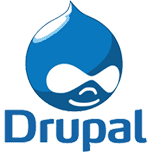
Websites, based on Drupal, could be very different — ranging from simple blogs to complex communities or social networking sites. For every website type suitable it's own specific modules, which implements needed functionality.
But, there is some areas, where every site can use same modules, independent from it's type — for example, performance and SEO. From very wide variety of Drupal modules is possible to pick out few of them, which is intended to solve such kind of common for every site tasks. This modules could be recommended for everyone, and we will talk about them next.
Must-have Drupal modules
Content Refresh — if your site uses built-in caching system, this module will be very useful — it can refresh site cache when new node or comment is posted, so anonymous users will see it immediately instead of waiting when cache will be refreshed ( could be hours ).
CSS Gzip — implements in addition to built-in CSS aggregation system Gzip compression of aggregated file. Saves you some traffic and reduces page loading time ( Gzip compresses CSS files in 2-4 times ).
JavaScript Aggregator — much like previous module, this one compresses aggregated JS files with Gzip. In addition JavaSc
ript Aggregator can perform JS optimization with JSMin library, reducing JS size even more.
DB Maintenance — automatically optimizes database tables by given intervals of time.
Global Redirect — very useful module, among it's other functions is possible to pick out one most important — Global Redirect can forward users to aliased URL instead of, for example, node/123, if alias for this node is created ( by Path module ). This mean that if user tries to access to node by it's "node" URL, module will check if there is alias for this node and redirect user to aliased URL. This way is possible to prevent content duplication, when same page can be viewed with more than one URL, which is very important for SEO ( although is better in addition block duplicated pages in robots.txt ).
Pathauto — allows automatically create URL aliases for nodes by given template using Tokens. For example, if node belongs to "Article" content type, is possible to automatically create for such nodes URL aliases like "example.com/articles/node-title".
Page Title — allows manual or automatically ( with Tokens ) set page titles, appeared in "title" tag. Useful for SEO.
CSS Embedded Images — one more helper in site performance tuning. As you may guess from it's title, this module can embed CSS images ( background images of site theme, mainly ) into CSS code, using Data:URI technique. Such way it's possible to reduce quantity of HTTP queries to web server needed to load your page.
XML sitemap — automatically generates XML sitemaps for search engines. In latest versions of this module is possible to select what include and exclude from sitemap, making this module more flexible.
Nodewords — intended to control meta-tags of your site pages. Useful for SEO.
P.S. If you know some other must-have modules for Drupal — feel free to post comments, and they probably will be added in the list.


 Websites, based on Drupal, could be very different — ranging from simple blogs to complex communities or social networking sites. For every website type suitable it's own specific modules, which implements needed functionality.
Websites, based on Drupal, could be very different — ranging from simple blogs to complex communities or social networking sites. For every website type suitable it's own specific modules, which implements needed functionality.